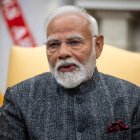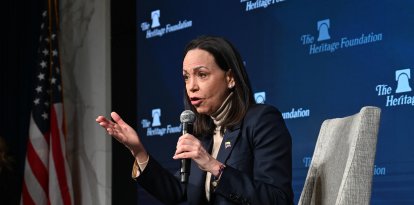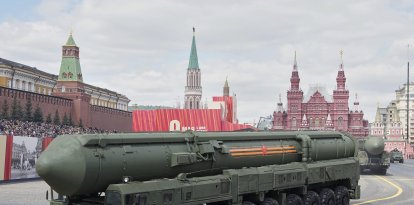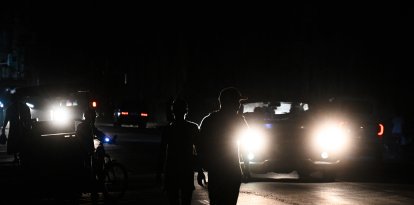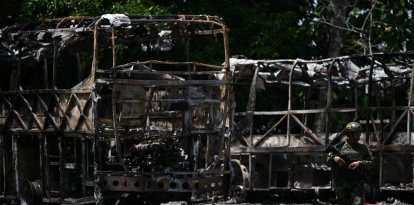India-Pakistan: The history of a conflict between two nuclear powers with no resolution in sight
The conflict has evolved from conventional wars to a combination of insurgency, terrorism and sporadic clashes. The recent Islamist bombing in Pahalgam, which killed 26 people, has rekindled fears of a sharp escalation between the two countries.

Kashmir
The conflict between India and Pakistan, centered mainly on the disputed region of Kashmir, is one of the world's most protracted and volatile, with roots in the 1947 partition and episodes of violence that have escalated to the recent attack in Pahalgam, Kashmir, which left 26 people dead.
Roots of the conflict
The origins of the conflict date back to August 1947, when British India split into two independent nations: India, with a Hindu majority, and Pakistan, with a Muslim majority. The partition, which displaced 17,000,000 people and left between 500,000 and 2,000,000 dead in communal violence, established an atmosphere of hostility.
Kashmir, a princely state with a majority Muslim population but ruled by the Hindu maharaja (great ruler) Hari Singh, became the epicenter of the dispute.
Singh initially sought independence, but in October 1947, Pakistan-backed tribal militias invaded the region, forcing him to request military aid from India and sign the Instrument of Accession, integrating Kashmir into India.
Most significant war conflicts
This triggered the First Indo-Pakistani War (1947-1949), which ended with a UN-mediated ceasefire and the establishment of the Line of Control (LOC), dividing Kashmir into administered territories for India (Jammu and Kashmir) and Pakistan (Azad Kashmir and Gilgit-Baltistan).
The conflict has generated several wars and clashes over the decades, such as the Second Indo-Pakistani War, when the Pakistanis launched Operation Gibraltar, infiltrating forces into Indian Kashmir to incite an insurgency.
However, the operation failed, and India responded with a full-scale attack in Punjab.
The war ended in a stalemate with the Tashkent Declaration in January 1966, brokered by the Soviet Union, leaving thousands of casualties on both sides.
Then came the War of 1971, which while centered on the liberation of Bangladesh (formerly East Pakistan), and which was achieved with that country's independence, had a front in Kashmir. India supported the Bengali separatists, achieving a decisive victory and Pakistan's surrender. The conflict consolidated the Line of Control, but did not resolve the Kashmir dispute.
In 1999 the Kargil War took place, Pakistani soldiers and paramilitary groups infiltrated into Indian Kashmir, occupying positions in Kargil in that region.

World
India orders expulsion of all Pakistanis within a week; Pakistan cancels visas for Indians
Santiago Ospital
India responded with air and ground attacks, recapturing the territory after heavy fighting.
In April 1984, India took control of the Siachen Glacier, also claimed by Pakistan, in Operation Meghdoot, overtaking Pakistan in a pre-emptive operation. Since then, the two countries have had sporadic clashes there.
The bloodiest terrorist attacks
The insurgency in Indian Kashmir, which began in 1989 with support from Pakistan-based militant groups, has generated some of the deadliest attacks.
In 2001, Jaish-e-Mohammed, a Pakistan-based Islamist terrorist group seeking the separation of Kashmir from India, carried out an attack on the Indian Parliament in New Delhi, killing nine people.
India mobilized troops along the border, bringing the two countries to the brink of war.
In 2008, members of Lashkar-e-Taiba, an Islamist terrorist group from Kashmir, carried out coordinated attacks in Mumbai, India, killing 173 people. New Delhi accused Pakistan of complicity.
Diplomatic tensions escalated, and Pakistan faced international pressure to act against the terrorist groups.
Eight years later, four terrorists attacked an Indian Army base near the LOC, killing 19 soldiers. India, which responded to the attack by targeting terrorist camps in Pakistan-administered Kashmir, accused Islamabad for the act, but the Pakistanis denied involvement in the attack.
In 2019, a suicide bombing by Jaish-e-Mohammed killed 40 members of the Indian Central Reserve Police Force in Pulwama. India responded with an airstrike in Balakot, Pakistan. The Pakistanis, in turn, shot down an Indian plane and captured the pilot, who was released days later.
That same year, India repealed Article 370 of the Constitution, which removed Kashmir's autonomy.
The latest major attack occurred last April 22, in Pahalgam, Indian Kashmir, when Islamist terrorists killed 26 tourists, including 25 Indians and one Nepalese.
The Resistance Front group, which has possible links with Lashkar-e-Taiba, claimed responsibility for the attack.
The attack, which occurred during US Vice President JD Vance's visit to India, shattered the relative calm in Kashmir, where tourism had grown to 3.5 million visitors by 2024.
The Indian government on Thursday issued an ultimatum for all Pakistanis in India: they must leave the country by April 29. The expulsion does not cover diplomats, although their numbers have been reduced. This latest initiative comes on top of the border closures and the suspension of a water distribution treaty imposed a day earlier.
Pakistan responded by following suit. Following a cabinet meeting, its government declared Indian defense, navy and air advisers in Islamabad persona non grata. "They are directed to leave Pakistan immediately," it said. It was also notified of the cancellation of visas issued to Indian citizens, except for pilgrims from the Sikh religious group.
A conflict with no resolution in sight
The conflict between India and Pakistan has evolved from conventional wars to a combination of insurgency, terrorism and sporadic clashes.
Despite attempts at dialogue, mutual distrust and Pakistani support for terrorist groups have perpetuated the cycle of violence.
The Pahalgam attack has rekindled fears of a major conflict between these nuclear powers.





